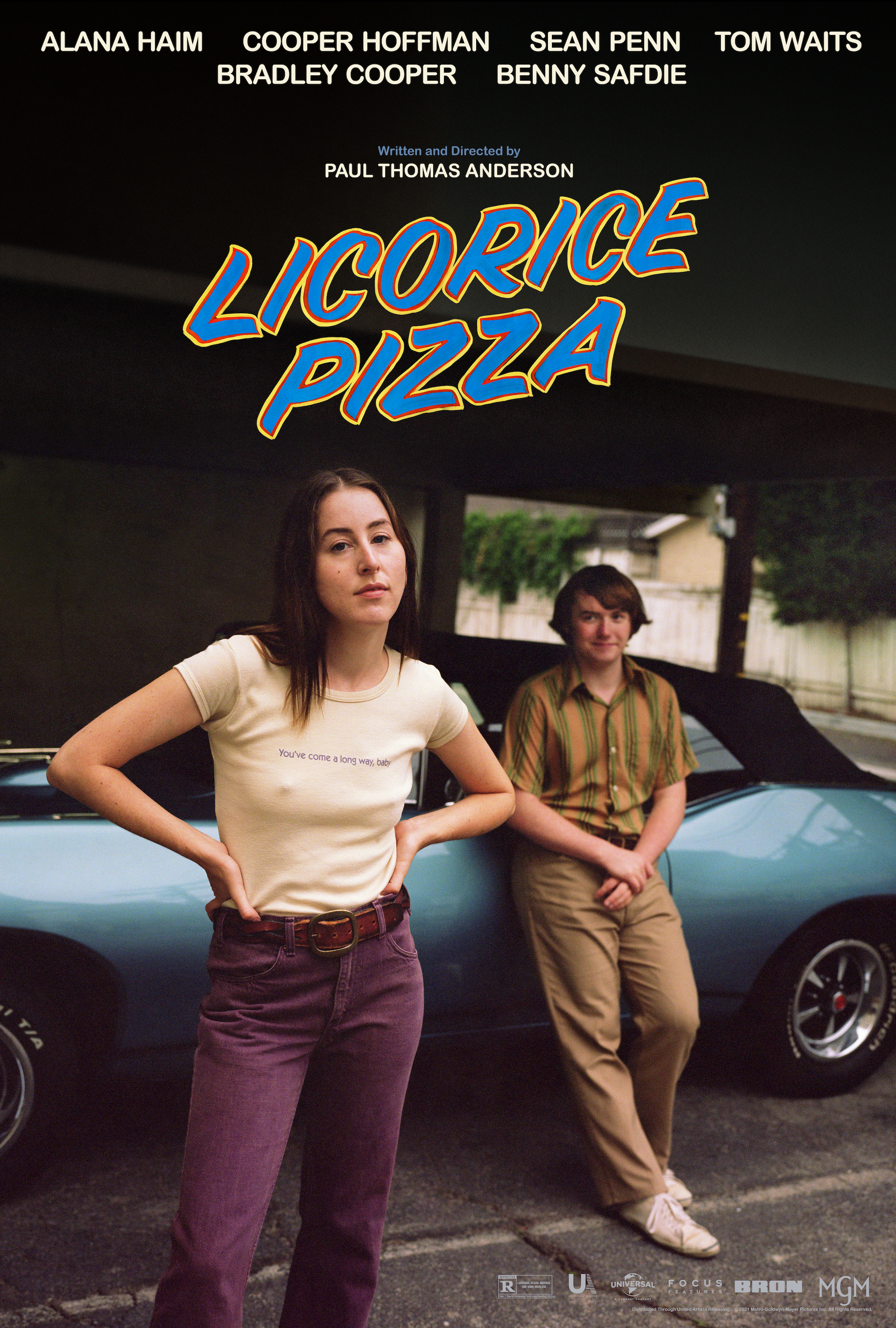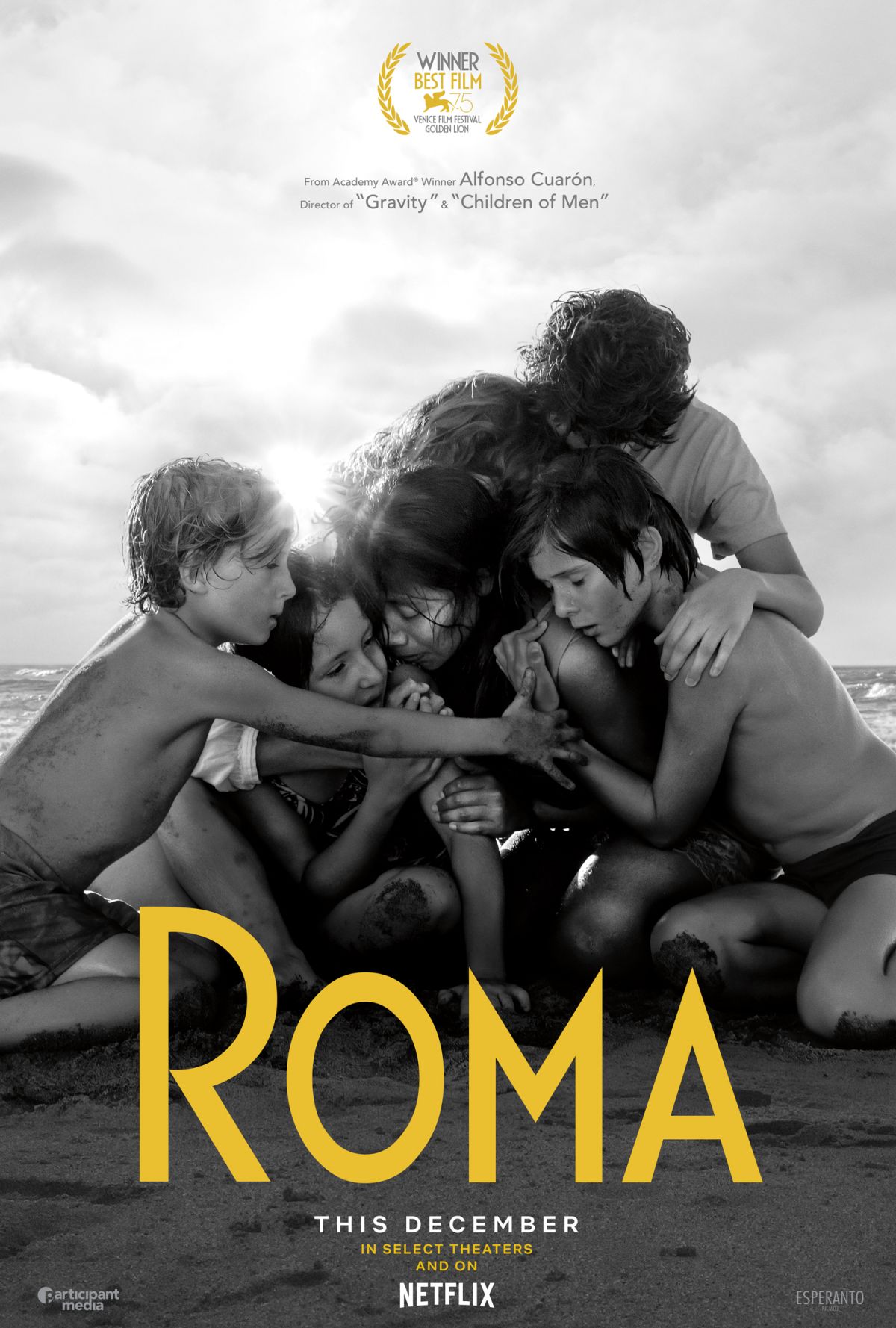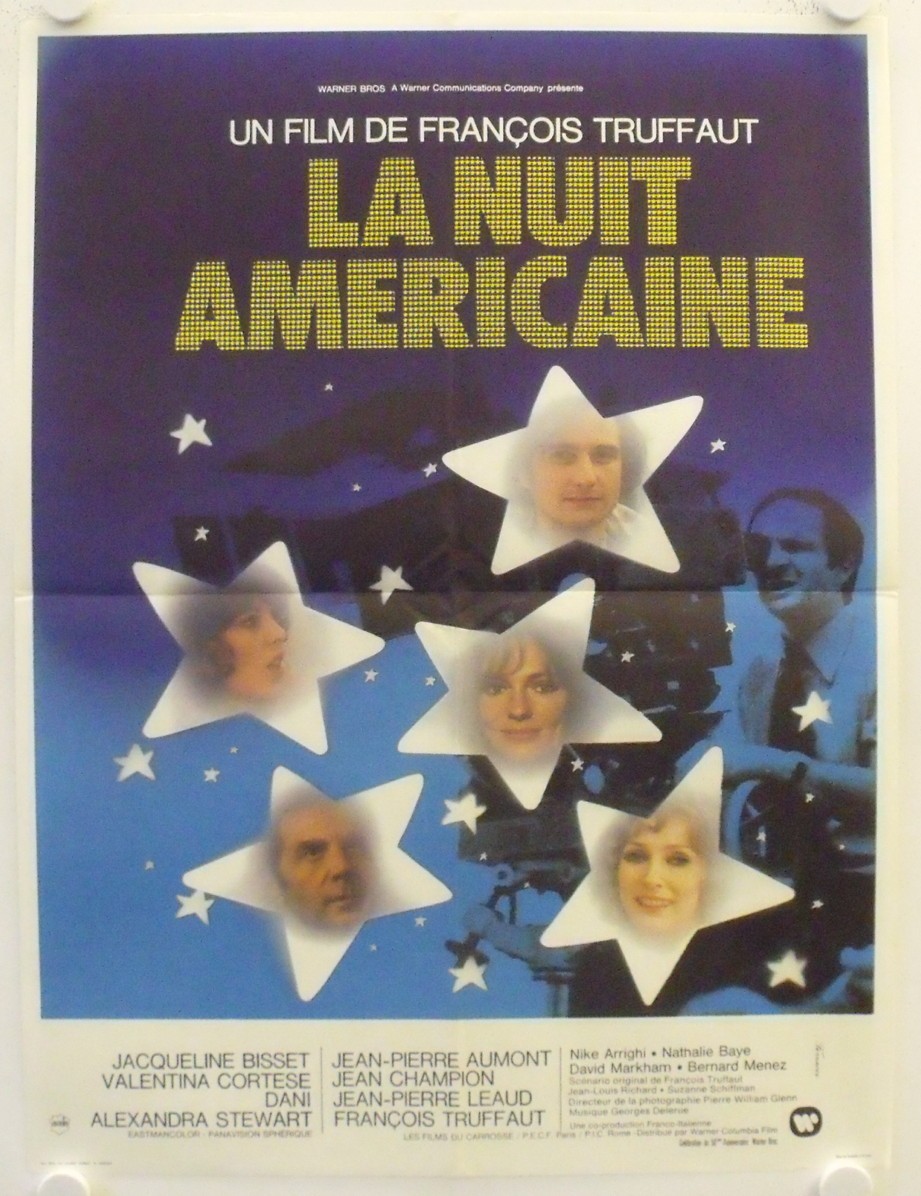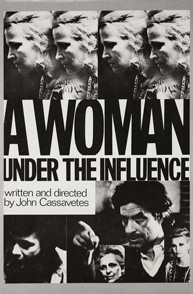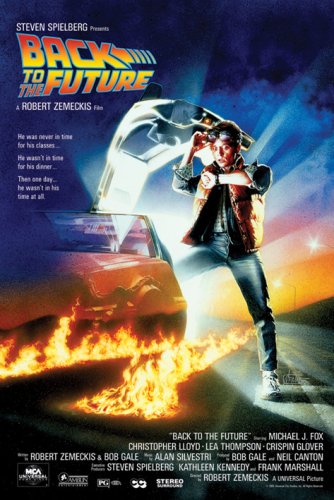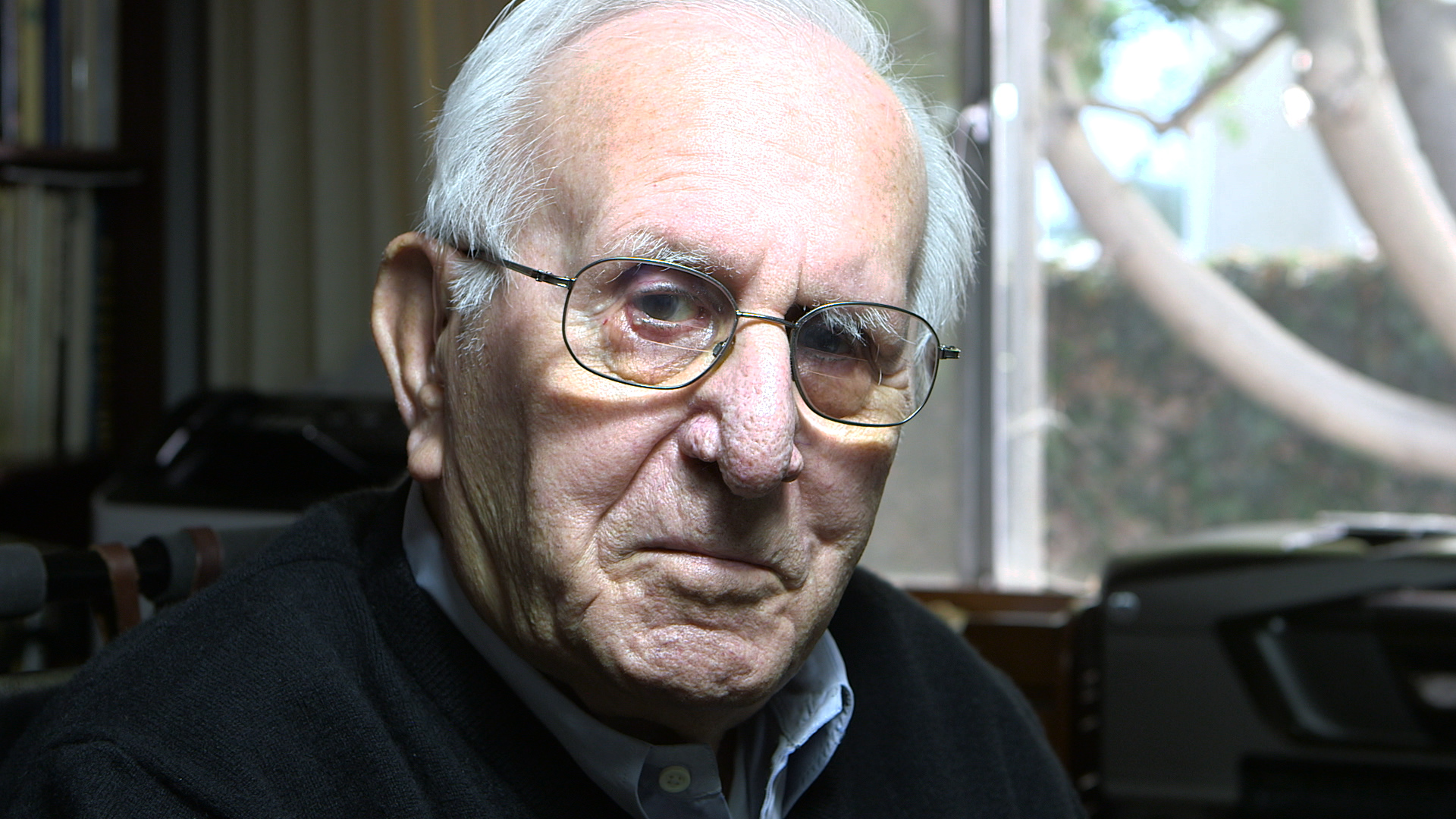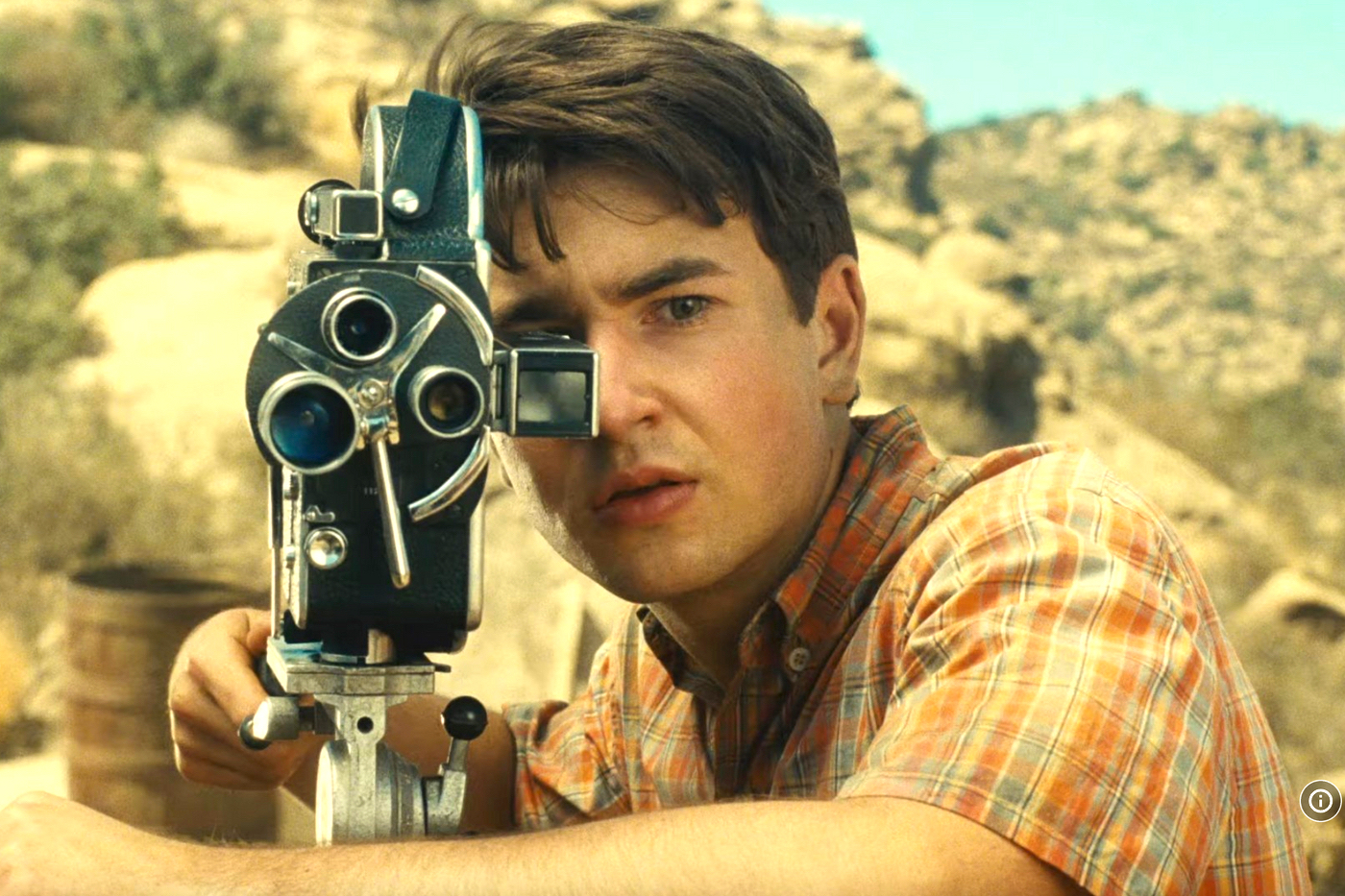
Steven Spielberg is far more interested in making movies than watching them in ‘The Fabelmans’
Pauline Kael said 26-year-old Steven Spielberg “has a knack for bringing out young actors, and a sense of composition and movement that almost any director might envy. ... If there is such a thing as a movie sense ... Spielberg really has it.”
She even said “The Sugarland Express” is “one of the most phenomenal debut films in the history of movies.”
People watching “The Sugarland Express” probably didn’t know the ending in advance. Watching “The Fabelmans,” they do. Sometimes, even 50 years of practice in the drama business doesn’t help.
Or maybe Spielberg has simply exhausted his inspiration and, still thankfully vigorous at 75, couldn’t help but fall into the vanity trap established recently by Alfonso Cuarón and Kenneth Branagh: Hey, maybe my own life (and parents’ split) is worth an extra-long feature film?!
Given that there are, almost literally, unlimited dollars chasing movie/TV/streaming content and finding their way to legendary as well as not-so-legendary visionaries, a flop like “The Fabelmans” is to be expected. Why was Steven Spielberg inspired by this line of work? It’s evidently not from hounding theaters the way Quentin Tarantino always talks about. Surely one viewing of “The Man Who Shot Liberty Valance” doesn’t prompt this type of drive. Maybe it’s just because everyone in the world wants to be a Hollywood bigwig.
“The Fabelmans” modestly entertains because, as in every Spielberg venture since about 1975, the production values are unmatchable. Throw this much talent and resources and expertise at a film project, you will get something presentable. Yet if Steven Spielberg were to summarize his own life, he could probably do much better with this: Talented individual who would be successful at any time achieves megastardom because, like the Beatles or Bill Gates, he grew up at the perfect time for his profession.
A few years ago, there was a movie directed by Paul Dano called “Wildlife,” about a teen boy in the 1960s American West coming to grips with his parents’ marital problems partly through his discovery of photography.
Today, there’s a movie co-starring Paul Dano called “The Fabelmans” about a teen boy in the 1960s American West coming to grips with his parents’ marital problems partly through his discovery of photography.
And long before there was either movie, there was “E.T.,” in which (according to the Associated Press,) “the issues the split brought up for Steven Spielberg were explored.” So this material has been around the block a bit.
In “Wildlife,” at least, there is drama. Not a ton, but there is drama. Dad might go berserk. In “The Fabelmans,” the worst thing Dad is going to do is get a promotion. One reviewer rightly wonders, “if the divorce was so even-handed and well-received, why bother making a film about it in the first place?”
“The Fabelmans” tells us that two people who have nothing in common created a family together and suffered the consequences. This could or should be tragedy. But “The Fabelmans” decides that the protagonist (not sure what his sisters are supposed to do) will, because he apparently has no other hobbies (and curiously never bothers to go watch many movies, a departure from Truffaut in “Day For Night”), blend his father’s exceptionalism with his mother’s exceptionalism in just the perfect field for it. And you can be sure he’s not leaving that Hollywood office without a job.
Note: If the teen son in a two-and-a-half-hour movie has to announce how Dad is just as at fault in the family disruption as Mom, we’ve got a cinematic breakdown here.
Paul Dano’s depiction as a bland father who doesn’t appreciate his son’s artistic interests is hardly groundbreaking. Spielberg’s father, Arnold, who died in 2020, really was a GE star and, had he been born 20 years later, might’ve been Bill Gates.
/cloudfront-us-east-1.images.arcpublishing.com/pmn/O4P352TYTVEBFNIBC3A2CZNWIU.jpg)
Notice it’s the females who are generally the artsy ones, and the unfortunate recipient of the role of Sam’s mother is four-time Oscar nominee Michelle Williams. One critic actually says “Williams is sensational as Mitzi and should be given Renée Zellweger’s most recent Oscar.” But another correctly observes, “whatever Michelle Williams is doing on screen just doesn’t seem real, true or recognizable.”
It’s camp. Early into the movie, she is not needed, and viewers begin to wonder what in the world she does besides play the piano and who does she even play it for, and why do we need to see her posing in front of headlights for maybe 10 minutes. There are hints that we’ll get the “Woman Under the Influence” type of disaster, but that would be too depressing for the outcome Sam is going to realize.
“The Fabelmans” is co-written by Spielberg and collaborator Tony Kushner. The exceptional San Francisco critic Mick LaSalle notes of the incidents portrayed, “If a scene is dull and seemingly unimportant, it probably happened. If it’s extreme, ridiculous or too on-the-nose, it’s probably Kushner.”
That may explain why “The Fabelmans” is confused on a number of levels. The primary villain’s place in the family must be explained by the grandmother, and it’s still not particularly clear. The secondary villain (implying California bigotry is quite an upgrade from that of Jersey and Arizona) sort of has a co-villain, each appears to be extras from “Back to the Future,” and instead of a simple school-bullying incident that we’ve all seen done well countless times, we have an elongated, two-girls-and-three-guys, unnaturally dialogue-heavy triangular conflict that culminates in a ludicrous prom night.
We are informed that a devastating breach of trust is only detected by a teenager’s close examination of a film, kind of like how Greg Brady’s picture was the only proof that the touchdown pass was really in bounds.
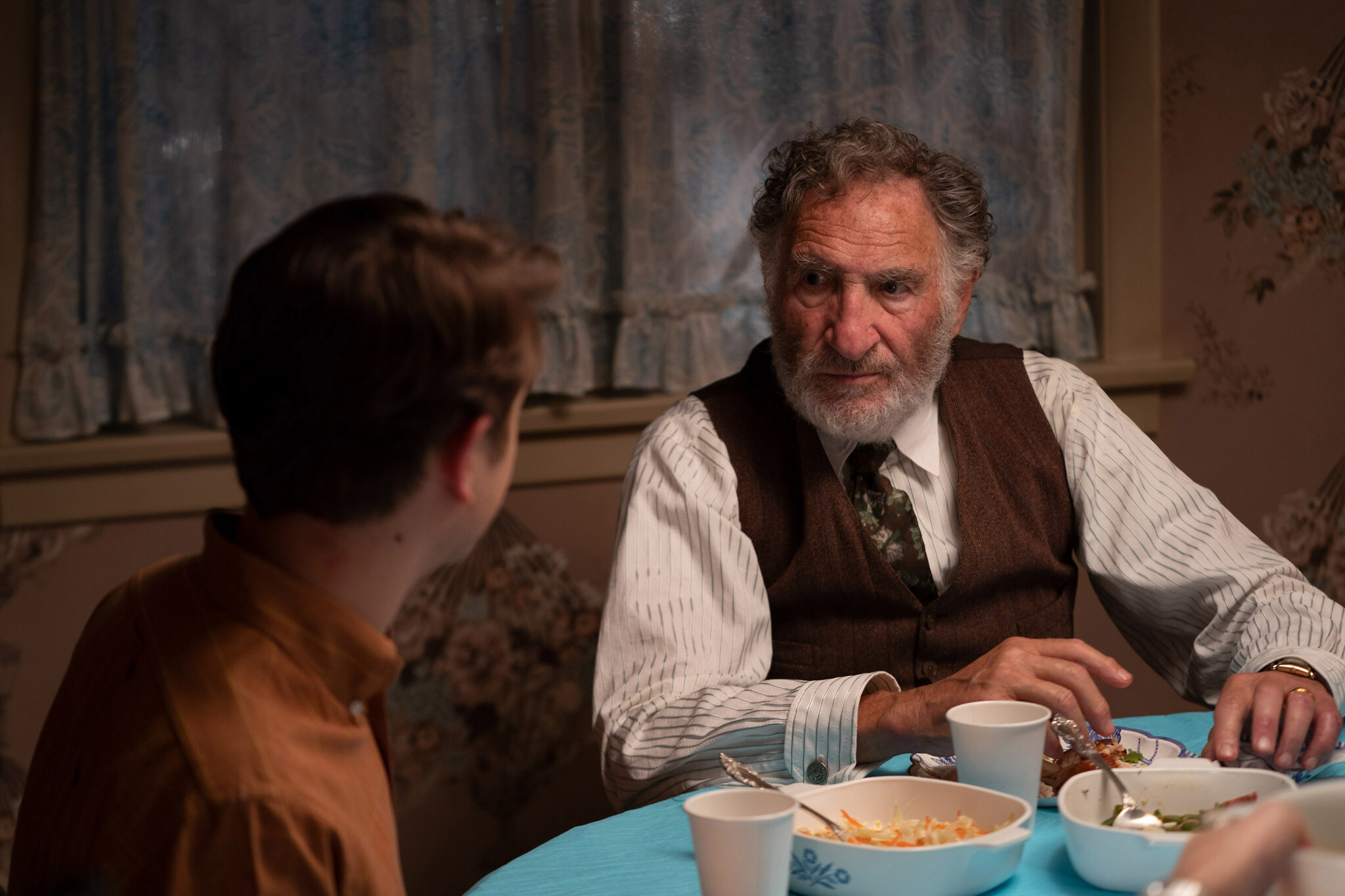
Judd Hirsch (he’s the dreaded relative who really actually isn’t as bad as everyone says and dutifully goes away when no one in the picture needs him) is compelled to give a speech in underwear that probably requires closed-captioning and 10 minutes of reading it to understand what he means. (Or you can just assume he’s telling Sam to keep at it.) Ethnic films (including “Licorice Pizza”) often find healthy cinematic fare at the dinner table; Spielberg’s depiction of dining room activity (including eating with paper plates and plastic forks and scooping the whole thing into the trash at the end) could be much appreciated by some viewers and lost on others.
In the opening scene, the parents apparently are eager to see “The Greatest Show on Earth” and are shown trying to assure their son — who presumably could derail the whole evening by throwing a fit — that he won’t find the movie scary. Then we see that all the boy cares about from the movie is a train sequence which, even though it’s scary, he wants to replicate by smashing the toy train set he receives for Hanukkah. And to stop breaking the trains, his mother suggests he can film the crash with a camera and watch it that way over and over.
Follow?
Spielberg loves the toy trains. He’s not that interested in geography. The Griswolds in “National Lampoon’s Vacation” know exactly where they must go for success. In “The Fabelmans,” you wouldn’t know the characters have even reached Southern California if they weren’t announcing it. Spielberg unlike in many California youth pictures ignores the car motif, except in one sequence outside a camera shop in which the classic rides pass back and forth so obviously as if to say “remember there were great cars in the ’60s.” He does not share Quentin Tarantino’s obsession with movie posters.
The ending is the best part of “The Fabelmans.” But if you don’t have a “movie sense” of what’s in that mail that Dad tells Sam to look at, then Hollywood has failed you mightily.
Steven Spielberg is the Warren Buffett of movies, the prodigy who does it for all the right reasons and who loves sharing his joy of the business with the layman. Not every business deal works. Two prominent critics both wrote that Spielberg “earned the right” to do this film. As Roger Ebert used to say, Accuracy is no excuse for cinema. Effectiveness is.
Thank you, Steven; we can give you a pass this time.
2 stars
(December 2022)
“The Fabelmans” (2022)
Starring
Gabriel LaBelle
as Sammy Fabelman
♦
Michelle Williams
as Mitzi Fabelman
♦
Paul Dano
as Burt Fabelman
♦
Seth Rogen
as Bennie Loewy
♦
Mateo Zoryon Francis-DeFord
as Younger Sammy Fabelman
♦
Keeley Karsten
as Natalie Fabelman
♦
Alina Brace
as Younger Natalie Fabelman
♦
Julia Butters
as Reggie Fabelman
♦
Birdie Borria
as Younger Reggie Fabelman
♦
Judd Hirsch
as Uncle Boris
♦
Sophia Kopera
as Lisa Fabelman
♦
Jeannie Berlin
as Hadassah Fabelman
♦
Robin Bartlett
as Tina Schildkraut
♦
Sam Rechner
as Logan Hall
♦
Oakes Fegley
as Chad Thomas
♦
Chloe East
as Monica Sherwood
♦
Isabelle Kusman
as Claudia Denning
♦
Chandler Lovelle
as Renee
♦
Gustavo Escobar
as Sal
♦
Nicolas Cantu
as Hark
♦
Cooper Dodson
as Turkey
♦
Gabriel Bateman
as Roger
♦
Stephen Smith
as Angelo
♦
James Urbaniak
as Grand View High School Principal
♦
Alex Quijano
as Grand View High School PE Coach
♦
Kalama Epstein
as Barry
♦
Connor Trinneer
as Phil Newhart
♦
Lane Factor
as Dean
♦
Greg Grunberg
as Bernie Fein
♦
David Lynch
as John Ford
♦
Jan Hoag
as Nona
♦
Carlos Javier Castillo
as Camera Store Clerk
♦
Ezra Buzzington
as Camera Store Clerk #2
♦
Paul Chepikian
as Pinnacle Peak Owner
♦
Brinly Marum
as Janet Benedict
♦
Mason Bumba
as Stunt Soldier Boy
♦
Mary M. Flynn
as Singer #1
♦
Adriel Porter
as Singer #2
♦
Tia Nalls
as Singer #3
♦
Larkin Campbell
as Scout Father
♦
Harper Dustin
as Natalie Photo Double
♦
Crystal
as Bennie the Monkey
Directed by: Steven Spielberg
Written by: Steven Spielberg
Written by: Tony Kushner
Producer: Steven Spielberg
Producer: Tony Kushner
Producer: Kristie Macosko Krieger
Associate producer: Brittani Lindman
Associate producer: Emma Molz
Executive producer: Josh McLaglen
Executive producer: Carla Raij
Music: John Williams
Cinematography: Janusz Kaminski
Editing: Sarah Broshar, Michael Kahn
Casting: Cindy Tolan
Production design: Rick Carter
Art direction: Andrew Max Cahn, Andy Broomell, Desma Murphy, Lauren E. Polizzi
Set decoration: Karen O’Hara
Costumes: Mark Bridges
Makeup and hair: Gloria Pasqua Casny, Eryn Krueger Mekash, Roxie Hodenfield, Angela Levin, Cindy Shute, Erica Villanueva, Miki Caporusso, Helena Cepeda, Jason Chandler Pettus
Production supervisor: Demelza Cronin
Post-production manager: Gunnar McGrew
Post-production executive: Justin Ostensen
Unit production manager: Carla Raij
Executive in charge of production: Luca Edo Russot
Post Production Executive: Justin Wagman
Stunts: Shauna Duggins, Kurt D. Lott, Garrett Warren, Claudia Abrego, Donny Bailey, Kelli Barksdale, Aimey Beer, Mason Bumba, Keith Campbell, Mike DeMille, Justin Ellings, Adam Jeffrey, Pierce Mayer, Whitney Ortega, Chris Palermo, Kara Petersen, Elizabeth Swaney, Omar Zaki
